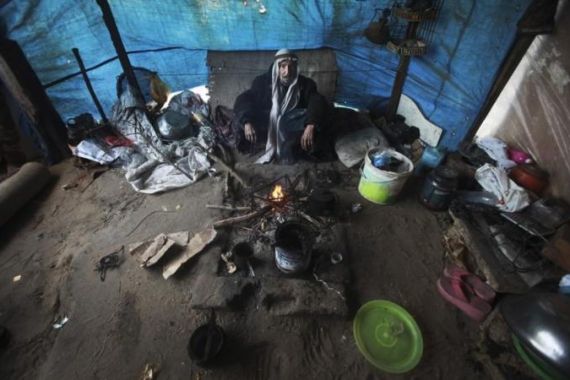Rio+20: Let’s prioritise social sustainability
Greater policy attention is needed in directing emerging models for a green economy.

Bridgetown, Barbados – Income inequality is one of many challenges faced by the poor and vulnerable. As public attention converges around the upcoming Rio+20 Conference in Brazil, it must be acknowledged that social development still lags behind economic progress, and that our measurement of sustainable development needs to advance beyond the quantitative. While advances have been made and innovations have occurred since the Eco-92 Earth Summit, macro-policy frameworks which deliver for all are still generally the exception rather than the rule.
The two main themes of this June’s conference in Rio de Janeiro – the green economy in the context of poverty eradication and an institutional framework for sustainable development – offer an important entry point to mainstream “inclusion” in sustainable development. A unique opportunity is presented to: (i) build on the committment to accelerate progress towards the Millennium Development Goals (MDGs) until the 2015 deadline; (ii) undertake a critical review of what has worked and what has not in the field of sustainable development in the past two decades; and (iii) strengthen the foundations for a shared and inclusive development agenda, while recognising the differentiated responsibilities and capacities of countries and multilateral organisations.
Keep reading
list of 4 itemsTurtles swimming to extinction in Malaysia as male hatchlings feel heat
Could shipping containers be the answer to Ghana’s housing crisis?
Thousands protest against over-tourism in Spain’s Canary Islands
| Debate in UK over benefits of green economy |
Greater policy attention is needed in directing emerging models for a green economy towards the growing challenge of making the management of natural assets more socially accountable, transparent and inclusive for the vulnerable populations. For this reason, consolidating institutional frameworks is as important as the discussion around green economy itself. Without strong and effective governance mechanisms for negotiating across and between competing needs and interests, much of the efforts to “go green” will either stymie or fail, particularly in the face of persistent fiscal constraints, economic crisis and rising inequality in the industrialised countries of the north.
Research papers (this and this) by the UNDP Brasilia-based International Policy Centre for Inclusive Growth (IPC-IG) have shown that one clear weakness in development practice has been the failure to appropriately integrate social dimensions into natural resource management. This is evident in the bias of international finance towards climate change mitigation actions vs adaptation, in glaring gaps in adaptation planning and in the failure to adequately address environmentally driven social risks, such as the impact of natural disasters on the poor, indigenous peoples and smallholder farmers in the global south. The social policy priority has often been to reduce the reliance of the poor on ecosystems for survival, without appreciating the way in which poverty forces the poor to rely almost exclusively on scarce natural resources.
Inclusive growth policy has often depended significantly on intensified resource consumption. Reduction in income inequality is actually the main indicator of an inclusive growth trajectory. Increasing consumption without a transformational change in the macro structures that perpetuate other forms of inequality stimulate a vicious cycle of poverty and environmental degradation. According to the World Bank Development Indicators (2008), more than 75 per cent of the world’s consumption of goods was attributed to the richest 20 per cent, while 60 per cent of the world’s middle class accounted for 20 per cent of the total consumption. At the same time, more than 2.6 billion people lack access to safe and hygienic sanitation facilities, and 1.3 billion are without access to electricity.
A social sustainability approach is one in which policy efforts prioritise the reduction of inequality, the promotion of productive inclusion and employment opportunities for the poor and vulnerable and enhanced access to resources and services. IPC-IG has been arguing that growth, gender, poverty and the environment can no longer be treated as loosely connected components of development. Recognising their interdependence is at the core of improved and sustained development for the current and future generations living on this planet. These issues will be at the core agenda of an upcoming major international event on May 17 in Brazil’s capital city, Brasilia, with a specific focus on fostering cooperation for agriculture development in Africa and producing effective results in social sustainability in the global south.
Poverty eradication and the reduction in inequality must move squarely to the centre of the development agenda. We must find ways to blend opportunities for social policy innovation, as well as to break the hold of non-inclusive structural frameworks. Sustained progress on sustainable development will require that we also address the structural factors that cause and sustain exclusion and marginalisation, be they related to gender, political processes, access to land, property rights for the poor, and so on.
As noted by President Dilma Rousseff from Brazil earlier this year at the World Social Forum: “We believe here, as we did during the government of President Lula, that it is possible to grow and to include, to protect and to conserve. Rio+20 will discuss a development model capable of linking growth and job creation, poverty eradication and inequality reduction, social participation and expansion of rights, education and technological innovation, sustainable use and preservation of environmental resources.”
Rio+20’s legacy depends on more than “greening”. Rio+20 must, in fact, look at the “social” and the “inclusive”, and identify appropriate and realistic pathways for keeping the promises made in Rio 92 and since then.
Leisa Perch is the team leader for Rural and Sustainable Development and a Policy Specialist at the UNDP-Brasilia based International Policy Centre for Inclusive Growth (IPC-IG).
